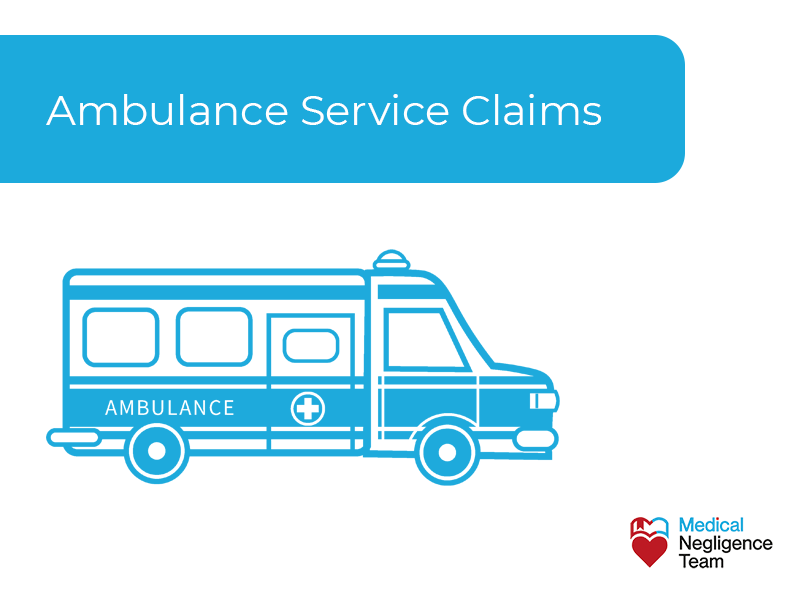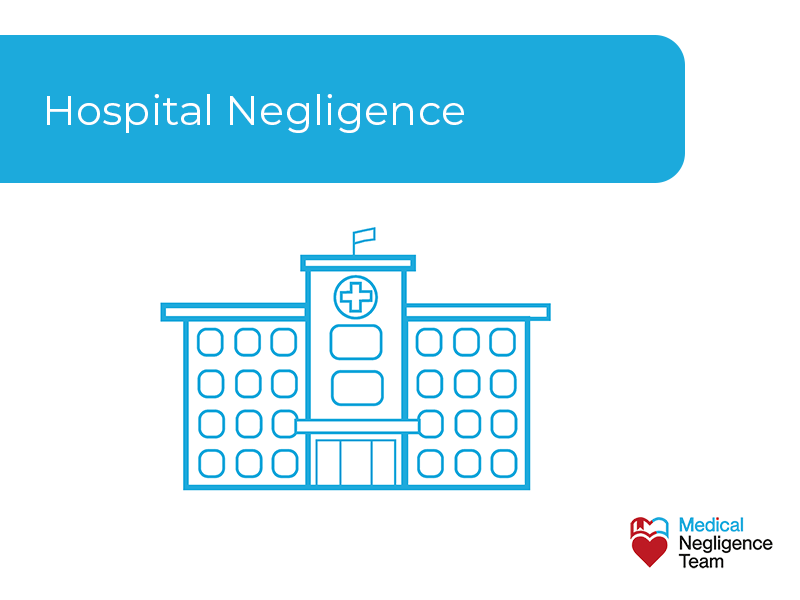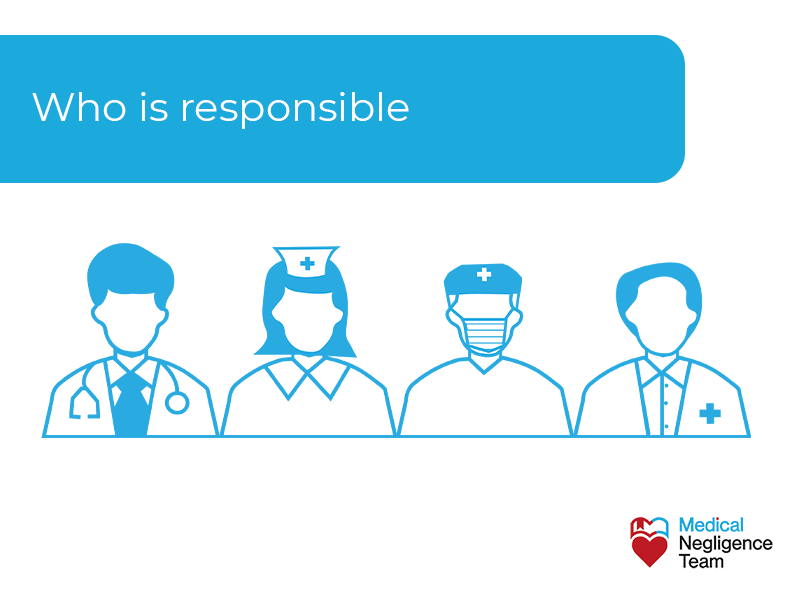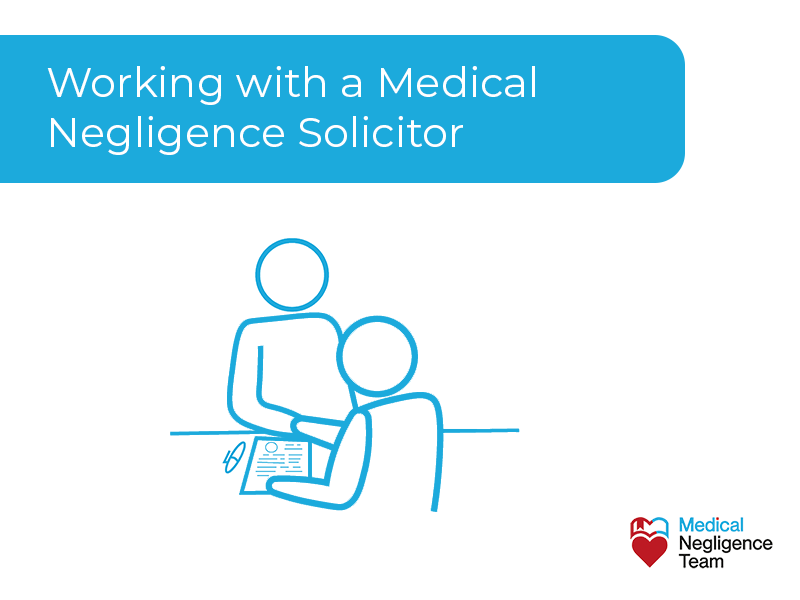Stroke negligence costs lives and should not happen. Stroke victims will suffer brain damage and can lose the use of their arms and legs. In many cases, stroke sufferers need a lifetime of round-the-clock care.
There is not any need for stroke negligence. A medical professional doing their job correctly should notice the signs of stroke and take action immediately.
Delays in treating and preventing stroke only worsen the effects of it and increase the need for long-term care.
In the UK, around 100,000 people have a stroke every year, and that’s about one stroke every five minutes. There are currently over 1.3 million stroke survivors in the UK, with over two-thirds of them living with a disability.
To suffer a stroke is life-changing. To suffer a stroke due to the medical negligence of others is devastating. A stroke can happen in an instant, but you will live with its effects for the rest of your life.
A stroke negligence compensation claim will get you the compensation you deserve, and a No Win No Fee medical negligence solicitor will handle your case.

Table of content
What is a stroke?
A stroke is when the blood supply to the brain is blocked or interrupted for a time. The brain needs a constant supply of oxygen which it gets from the bloodstream.
Any interruption to the bloodstream stops the brain from getting its feed of oxygen, shutting down the affected part or parts.
Your arteries carry blood throughout the body and up to the brain. The blood supply carries the oxygen and nutrients that feed the brain and keep it active.
A stroke happens when an artery stops supplying blood to the brain.
There are two types of stroke:
Ischaemic stroke
Ischaemic stroke is when there is a blockage in an artery carrying blood to the brain. The block or clot can be sudden or build up over time. Ischaemic stroke is responsible for around 80% of all strokes in the UK, and there are two types of it.
Embolic stroke is when the blood clot forms elsewhere in the body, usually in the heart, but it can also start in the limbs before moving into the brain. The blood clot will get stuck in a blood vessel in the brain and cause a stroke.
Thrombotic stroke happens when the clot forms in the already narrowed or damaged arteries within the brain. The clot blocks the blood supply to that part of the brain, and you suffer a stroke.
Haemorrhagic stroke
Haemorrhagic stroke is when an artery supplying blood to the brain bursts. Weak arteries supplying blood to the brain are the result of prolonged high blood pressure that will do damage throughout your life.
The subsequent interruption in blood supply to parts of the brain causes the stroke.
Causes of a stroke
Causes of a stroke include lifestyle, age and medical conditions. Anyone can have a stroke at any age, but the risk factors increase as you get older and the body slows down or changes.
You should be aware of the causes of stroke and ask the doctor for advice if you are in a danger group.
Any medical professional working in an acceptable manner will determine your risk and advise you on medication and lifestyle changes.
Common causes of a stroke are:

The age of a patient
The age of a patient is a significant factor when considering the cause of stroke. As we age, our body slows down and our arteries begin to harden and narrow.
Unfortunately, the body’s ability to deal with fatty compounds also decreases, and they often end up in the bloodstream lining and clogging the arteries.
Existing medical conditions
Existing medical conditions such as high blood pressure and high cholesterol are significant causes of stroke. Diabetes, like high cholesterol, increases the risk of clogging the arteries with fatty plaque and causing a stroke.
Atrial fibrillation often causes a clot to form in the heart, which can travel to the brain.
Lifestyle habits
Lifestyle habits, especially when combined with other causes of stroke, significantly increase your risk of having one. Bad lifestyle habits can go on for years and do a lot of damage before a stroke happens.
Smoking at any age does a lot of damage to the lungs and heart, increasing the risk of stroke.
Drinking alcohol above recommended daily limits puts pressure on the liver and other organs.
Lack of exercise and bad diet are huge risk factors for stroke in many victims.
A family history of stroke
A family history of stroke is an obvious cause of stroke in many people. If a direct relative such as a parent, sibling or grandparent suffered a stroke, you are at an increased risk of it being a cause of your having one.
Being aware of family history and making changes to lifestyle habits helps prevent stroke in vulnerable patients.
Ethnicity of the patient
Ethnicity of the patient can be a big cause of stroke. Black or South Asian families have a high occurrence of stroke, and ethnicity, combined with other causes of stroke, can be a risk.
Getting checked at an early age for diabetes can help tackle this cause of stroke.
Pregnancy in vulnerable women
Pregnancy in vulnerable women is a cause of stroke, though not a common one. Pregnancy can cause changes in the blood, making it more likely to clot, and stroke is always a risk combined with a higher blood pressure.
Your doctor is aware of the causes of stroke; if you are a vulnerable patient, they should advise you on medication and lifestyle adjustments.
Medical negligence around stroke happens when a doctor does not treat you correctly and ignores the signs of stroke.
What is a TIA?
A TIA, also known as a mini-stroke, is when the blood supply is temporarily blocked in the brain. The Transient Ischaemic Attack usually lasts only a few minutes, and the patient recovers quickly.
A TIA is a sign that a stroke can happen. It is a lucky escape for a patient, and the patient and their doctor must take the warning signs on board.
Suffering a TIA is a chance for your doctor to prescribe you medication and advise you on lifestyle changes.

How to diagnose a stroke
FAST is the international guideline for diagnosing stroke and for the speedy treatment of those suffering one.
Facial weakness: is the patient’s eyes or mouth drooping? Can they smile?
Arm weakness: can they lift their arms, and is one arm weak or drooping?
Speech difficulty: can the patient speak clearly, or is speech slurred and incomprehensible?
Time: time for action once you see the patient is experiencing any of the signs of stroke

Understanding FAST and using the guidelines with anyone showing signs of stroke can help save lives and reduce the effects of stroke.
What are the types of stroke negligence?
Types of stroke negligence range from misdiagnosis of a stroke to failing to treat a stroke correctly. A stroke is a serious, life-threatening condition that, left untreated, has serious consequences for you and your family.
Discovering you had a stroke but also suffered negligence can be difficult to understand. If you suffer one or more types of stroke negligence, you may have a compensation claim for negligence.
Types of stroke negligence are:

Stroke misdiagnosis or late diagnosis claims
Stroke misdiagnosis or late diagnosis happens when the medical staff treating you miss the obvious signs of stroke. FAST guidelines should be clear to all medical staff, and failing to follow them is clear stroke negligence.
Stroke misdiagnosis only leads to delays in admitting you to the hospital and in any life-saving treatment.
Delays in the ambulance service claims
Delays in the ambulance service in responding to a possible stroke callout only make the situation worse. The NHS has clear targets for paramedics on a stroke call, and failing to meet them is unacceptable.
Delays in getting to the stroke victim and in carrying them to the hospital is a serious form of stroke negligence.

Unacceptable delay in the A&E claims
Unacceptable delay in the A&E after admitting a possible stroke victim can lead to losing valuable treatment time. The A&E staff should be fully briefed by the incoming ambulance staff and be prepared for action.
Not having the right staff on standby and alerting the stroke team causes unacceptable delays in the A&E.
Failing to treat high blood pressure claim
Failing to treat high blood pressure can only increase the risk of stroke. High blood pressure is a factor in many stroke cases, and a history of it should be addressed by the GP.
Your GP should be aware of stroke risks and other factors such as family history and bad lifestyle.
Failing to treat high blood pressure in the circumstances is stroke negligence.
Receiving incorrect treatment in the hospital claims
Receiving incorrect treatment in the hospital, such as not injecting you with high doses of blood thinners or ordering relevant scans, delays treatment.
Surgery is often the only option to relieve the effects of stroke. Not ordering surgery or delays in alerting the surgical team can make a bad situation worse.

Not reacting to signs of a TIA claims
Not reacting to signs of a TIA is stroke negligence. A TIA, or mini-stroke, is the first sign that you are a potential stroke victim.
It is a warning sign that most stroke victims do not get, and your doctor should take advantage of it.
After a TIA, your doctor should send you for further tests, prescribe blood thinners and advise on the causes of stroke.
Anything else is stroke negligence.
Not referring for further treatment claims
Not referring for further treatment when you suffer a stroke or TIA can only increase your chances of another stroke.
You can recover and fight the effects of stroke by receiving treatment such as the prescribing of the right medications, scans and rehabilitation courses.
Further treatment and consultation with stroke teams are the ways to avoid another stroke or its effects.
Errors in prescriptions claims
Errors in prescriptions are a common cause of stroke negligence. Stroke can be a side effect of certain medications, and they should not be prescribed if you had a stroke or are in danger of one.
When you have a stroke or TIA, blood thinners can prevent one from happening again. Not prescribing them or at too low a dose is stroke negligence.
Who is responsible for stroke negligence?
A medical professional is responsible for stroke negligence, and it is their responsibility to recognise the signs of stroke and to act immediately.
Any delays and incorrect treatment will only worsen your symptoms and increase the chances of long-term damage.
The ambulance service that delays getting to your home and to the hospital is responsible for stroke negligence. The paramedic who fails to follow the FAST guidelines is guilty of missing the signs of a stroke.

Your GP, who does not follow your medical records, nor refers you for further treatment when showing signs of a TIA, is responsible for stroke negligence.
The medical staff at the hospital who ignored your signs of stroke and delayed referring you for further treatment is responsible for your stroke negligence.
Medical staff are responsible for stroke negligence. If you or a loved one suffers stroke negligence, you can file a stroke negligence compensation claim.
What can you claim for when suing for stroke negligence?
You can claim compensation for any damages that occurred when suing for stroke negligence.
There are two types of compensation damages due when suing for any type of medical negligence: General damages and Special damages.
General damages
General damages are when you sue for the pain, suffering and the loss of amenity, PSLA, you have experienced due to negligence.
Special damages
Special damages include loss of earnings, future care costs, and out-of-pocket expenses.
Be sure to keep payslips, receipts and proof of any losses you experience as a result of the medical negligence.
You deserve compensation to cover all losses, including loss of life, medical costs and any long-term care needs.
When you or a loved one suffers from the effects of stroke negligence, you make a claim for compensation.
Your No Win No Fee solicitor will guide you through the steps in making a stroke negligence claim.
What are the steps involved in making a stroke negligence claim?
The steps involved in making a stroke negligence claim go from seeking medical advice to issuing court proceedings. The steps are a part of any successful compensation case, and settlement can happen at any stage in the process.
When you follow the steps correctly and get all the facts and figures together, your medical negligence solicitor will do the rest.

Step 1: Seek medical advice
Seek medical advice on the injuries you have suffered or are suffering with immediately you realise you experienced stroke negligence.
Step 2: Contact a specialist medical negligence solicitor
Contact a specialist medical negligence solicitor who operates on a No Win No Fee basis and tell them what went wrong. The right solicitor will look at your case, see where the problem lies, and advise if you suffered stroke negligence.
The Medical Negligence Team also have a 100% Compensation Guarantee scheme, where you get all the money awarded in a negligence claim.
You are the one who suffered medical negligence, and you should get all the money due for the suffering.
Step 3: Your medical negligence solicitor obtains your medical records
Your medical negligence solicitor obtains your medical records with your permission. By reading your records, they will confirm if they think you have a valid stroke negligence case.
The medical negligence team will know from reading your medical records it the case will result in stroke negligence compensation being paid.
Step 4: The medical negligence solicitor sending a letter of claim to the negligent party
The medical negligence solicitor sending a letter of claim to the negligent party is the next step. The letter will ask them to admit stroke negligence in what is known as ‘sending a letter of claim.’
When the negligent party receives the letter of claim, it has up to four months to provide a written response.
Step 5: Getting a response from the negligent party’s insurer
Getting a response from the negligent party’s insurer will move your compensation claim closer to a conclusion.
The insurer will either admit the medical negligence or say they intend to defend the case. Deciding to defend the case is known as ‘deny liability’ in legal terms.
If they admit liability, your stroke negligence claim can be valued.
The two parties will meet to decide on your stroke negligence compensation payment.
Your solicitor will negotiate with the negligent party and use their experience to get the compensation you deserve.
Step 6: Issuing court proceedings
Issuing court proceedings is the next step if they deny liability in your stroke negligence case. Going to court happens, too, when they are not prepared to pay a fair amount for the injuries you have suffered.
Your medical negligence solicitor issues the court proceedings.
Remember that less than 1% of medical negligence cases end up in court, and very few of those cases ever make it to the courtroom.
Our Process
Our team members have a higher career win rate with a 75% success rate on NHS letters of claim, compared to an industry average of 54.5%.
Enquiry
The first step is to get in touch and tell us what went wrong. It’s free and easy. Call our 24-hour helpline: 0800 246 1122 or request a callback here.
Medical Evaluation
Once you have spoken with our team we’ll let you know how we can help. Typically the next step is to obtain your medical records for us to review.
Legal Letter
Once all your medical records have been received they will be reviewed by a medically & legally qualified member of our team. If there is evidence of medical negligence we will send a letter of claim to the negligent party outlining your medical negligence claim.
Using a No Win No Fee solicitor
Using a No Win No Fee solicitor is the only way to a successful stroke negligence claim. Your No Win No Fee medical negligence solicitor will not charge you for a claim you do not win.
Always have a fee agreement in place before engaging a medical negligence solicitor. If they start talking of a ‘win fee’ or a ‘success fee,’ you should walk away. The negligent party insurers should pay all fees.
The medical negligence solicitor should also operate a 100% Compensation Guarantee scheme. When you win the case, all the money awarded should go to you, not the solicitor.
You are the one who suffered stroke negligence, and you deserve the compensation to get your life back to normal.
How long do I have to make a claim for stroke negligence?
You have three years to make a claim for stroke negligence. All medical negligence claims are subject to limitation periods.
For example, in England and Wales, medical negligence claims must generally be brought, court proceedings issued within three years of the injury, or three years of knowledge of the facts giving rise to the claim.
If someone has passed away, it is the date of death if the limitation period has not expired at the date of death.
Children not under a disability typically have until they reach 21 to start a stroke negligence claim or court proceedings.
Persons under a disability, who lack capacity, are not subject to any limitation period.
Can I make a medical negligence claim against the NHS?
Yes, you can make a medical negligence claim against the NHS. Suing the NHS for negligence is not unusual. People sue the NHS for compensation for medical negligence and receive the money they deserve for the negligent treatment.
Each year there are between 8,000 and 10,000 successful medical negligence claims against the NHS. Suing the NHS for medical negligence can make some people feel uncomfortable.
Amounts in compensation claims awarded against the NHS range from £1000 to over £10 million. The amount you receive covers minor injuries such as scarring to serious life-threatening negligence, which leaves you with long-term care needs.
We trust in and use the NHS daily and do not expect negligence. It happens, though, and the NHS has a dedicated team to handle medical negligence compensation claims, called NHS resolution.
NHS Resolution has a responsibility to treat patients who seek compensation fairly. Patients pay for the
NHS through their taxes, and for that they deserve respect and the best medical treatment.
Contact The Medical Negligence Team
Contact the Medical Negligence Team today to discuss your stroke negligence claim for compensation. We have both the legal and medical experts to guide you along the steps to a successful medical negligence claim for compensation.
At the Medical Negligence Team, we fight every compensation claim on a No Win No Fee basis. You will not be out of pocket for an unsuccessful claim.
We have a very high success rate and a reputation for a speedy and successful resolution to all medical negligence cases.

Our 100% Compensation Guarantee puts all the money you win into your pocket. You or your loved one suffered stroke negligence, and you deserve every penny of the compensation.
Contact us at the Medical Negligence Team for all your medical negligence needs.

